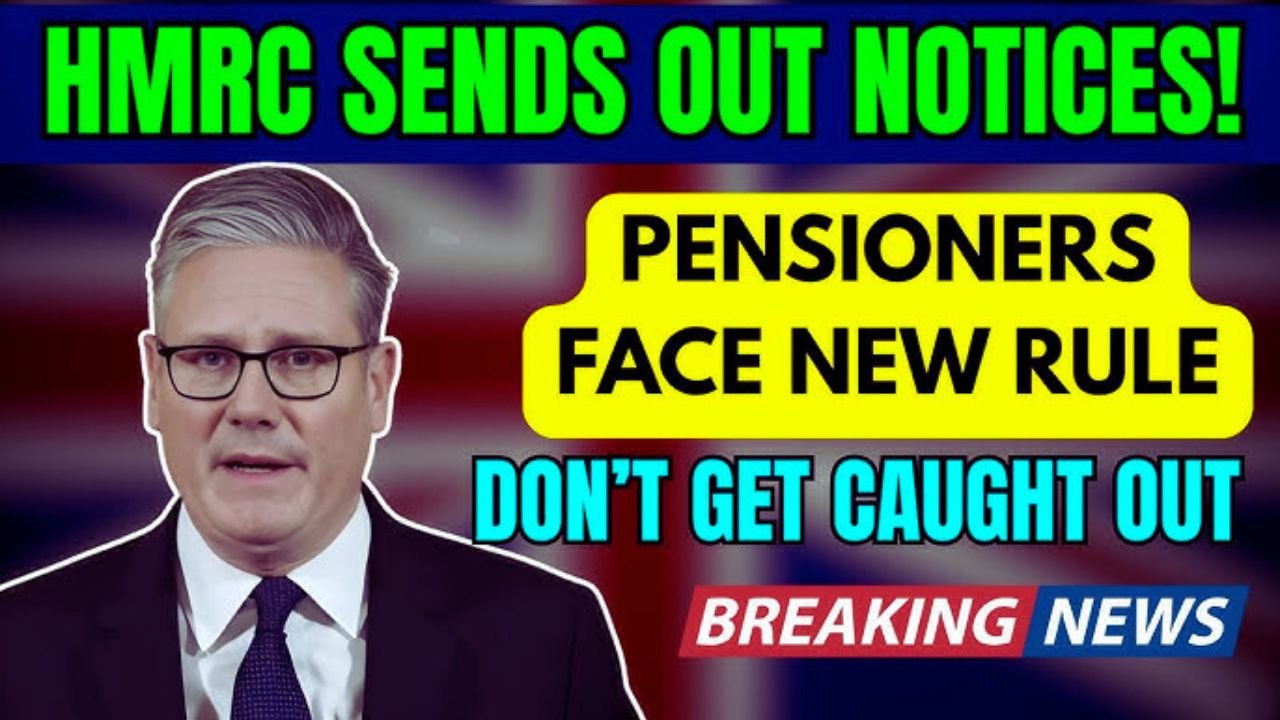Many UK pensioners with savings above £3,000 are getting letters from HMRC, and it’s causing a bit of worry. These notices aren’t about new taxes but making sure everyone’s reporting their income right, especially interest from savings. With banks now sharing data directly with HMRC, it’s easier for them to spot when savings earn more than the tax-free limit. This article explains what these letters mean, why they’re being sent, and what pensioners should do next. It’s all about keeping things clear and stress-free.
Why HMRC is Sending Notices
HMRC, the UK’s tax authority, is checking that pensioners report all their income, including interest from savings accounts. The £3,000 mark isn’t a tax threshold, but it’s a point where interest can start adding up, especially with today’s higher rates. For example, £3,000 at 5% interest earns £150 a year, which is below the tax-free allowance for most but still gets HMRC’s attention. They’re also making sure benefits like Pension Credit are calculated correctly, as savings can affect what you get. These notices are often just a heads-up to check your details or confirm your income.
Who Might Get a Notice
Not every pensioner with over £3,000 in savings will get a letter, but some groups are more likely to. If your savings earn interest above the Personal Savings Allowance (£1,000 for basic-rate taxpayers, £500 for higher-rate), HMRC might ask for clarification. Pensioners claiming benefits like Pension Credit, Housing Benefit, or Council Tax Support could also be contacted, as savings above £10,000 can reduce these payments. Here’s a quick guide to the key thresholds:
| Savings Level | Impact on Benefits or Tax |
|---|---|
| Up to £10,000 | Ignored for Pension Credit |
| Over £10,000 | £1 weekly income assumed per £500, reduces benefits |
| Interest over £1,000 | Taxable for basic-rate taxpayers |
If your bank reports interest or your tax code needs tweaking, you might see a notice too. It’s about keeping records straight, not catching you out.
What the Notices Mean for You
These letters aren’t tax bills, so don’t panic. They might ask you to confirm your savings, check your interest, or update your tax code. If your interest stays under £1,000 (or £500 for higher earners), you likely won’t owe tax. But if it goes over, HMRC might adjust your pension’s tax code to collect it automatically, or you may need to file a Self Assessment. For benefits, savings above £10,000 mean an assumed income of £1 per week for every £500, which could lower what you get. Always read the notice carefully to see what’s needed.
Steps to Take if You Get a Notice
If a letter lands in your postbox, don’t ignore it. Check your bank statements to see how much interest you’ve earned. You can respond online via your HMRC Personal Tax Account, call 0300 200 3300, or write back by the deadline, usually 31 January. Keep records of your interest and any letters you send. If you’re unsure, Age UK or a financial advisor can help. To avoid tax, consider putting savings in an ISA, where up to £20,000 a year earns tax-free interest. Acting quickly keeps things simple and avoids penalties.
How to Stay Ahead
To dodge surprises, keep an eye on your savings and interest each year. Use your Personal Tax Account to check your tax code and make sure it’s right. If you’re on benefits, use the gov.uk Pension Credit calculator to see how savings affect you. There’s talk of raising the £3,000 threshold, as some say it’s too low for today’s costs, but nothing’s confirmed yet. For now, staying organised and responding to HMRC promptly means you can keep enjoying your savings without hassle. It’s all about being prepared and knowing your options.
